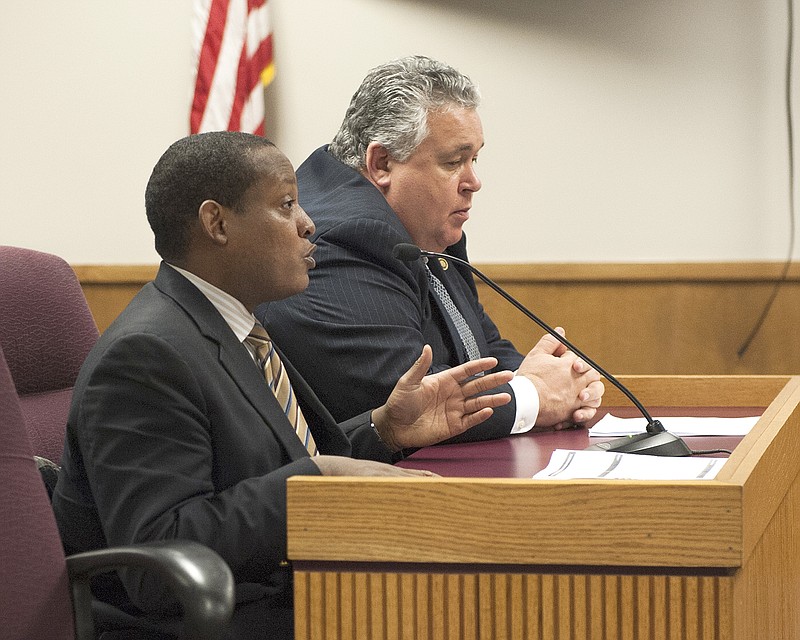Senate Bill 982 is "a measured response" to problems that arose last summer when an insurance company implemented a program concerned with emergency rooms, Sen. Paul Weiland, R-Jefferson County, said.
Speaking in a hearing before the House Committee on Children and Families, he said the problems started when Anthem Blue Cross Blue Shield of Missouri announced it would evaluate emergency room visits after the fact and would no longer pay for some visits if patients turned out to have what it considered mild ailments.
The announcement ignited a firestorm of activity and led to the genesis of SB 982. The American Heart Association sent out an email that said a person who experiences chest pain and shortness of breath and goes to the hospital only to find out they have heartburn could have been stuck with the bill. The organization didn't want a person misdiagnosing themselves to avoid going to an emergency room.
SB 982 could alleviate that worry. It specifies that whether an ailment is considered an emergency medical condition depends on the person having sufficiently severe symptoms, regardless of the final diagnosis.
On Jan. 1, Anthem implemented a series of of "always pay" exemptions to its avoidable ER policy.
This spring, the bill passed through the Senate with only one vote in opposition. Weiland said he didn't know what the person who opposed the bill was thinking.
"The bill would protect consumers from billing disputes that would come up between insurance companies, doctors and hospitals," Weiland told the committee.
He described a situation in which a 27-year-old female doubled over in pain. She suffered through a night as the fever and pain worsened. The woman called her mother - a former nurse - who told her it sounded like appendicitis and told her to go to the emergency room immediately. Doctors in the emergency room did multiple tests, including a CT scan and ultrasound. They determined she had ovarian cysts, not appendicitis. A few weeks later, she received a $12,000 bill from the hospital, which said her insurance company had denied her claim.
The insurance company said she should not have gone to the emergency room to begin with.
Similar situations have arisen for other consumers since Anthem rolled out the policy last summer. The company said it would deny claims when a consumer goes to an emergency room for an ailment it considered minor.
A longtime Missouri law - defining the Prudent Layperson Standard - says "treatment must be covered if the sudden, and at the time unexpected, onset of a health condition manifests itself in symptoms of sufficient severity that it would lead a prudent layperson in possession of average knowledge of medicine and health to believe that immediate medical care is required."
SB 982 adds eight words to the Prudent Layperson Standard; "regardless of the final diagnosis as given."
Additionally, the bill would prevent hospitals from presenting consumers with "surprise billing," which happens when insurance companies won't pay for some doctors' services if the doctors weren't in the consumer's network - for example if the overnight anesthesiologist is hired not as an employee, but as a contractor.
Under the bill, the insurer and health care provider enter binding arbitration over the bill for the service.
"What this bill is designed to do is take the consumer off the hook," Weiland said. "The consumer needs to be protected."
Speaking in favor of the bill, Sean D'Abreu, policy director for Missouri Health Care for All - a grassroots organization started by communities and faith leaders to make certain everyone has health coverage - said the bill could go much farther.
"We are very supportive of this bill," D'Abreu said. "We hope you see it as just the first step."
D'Abreu said adding wording to the prudent layperson segment of the law "brings it back into common sense."
He said the bill is "very good," but only covers narrowly defined hospital visits unanticipated emergency care, only in hospital facilities and only in emergency rooms.
He'd like to see it expanded.

